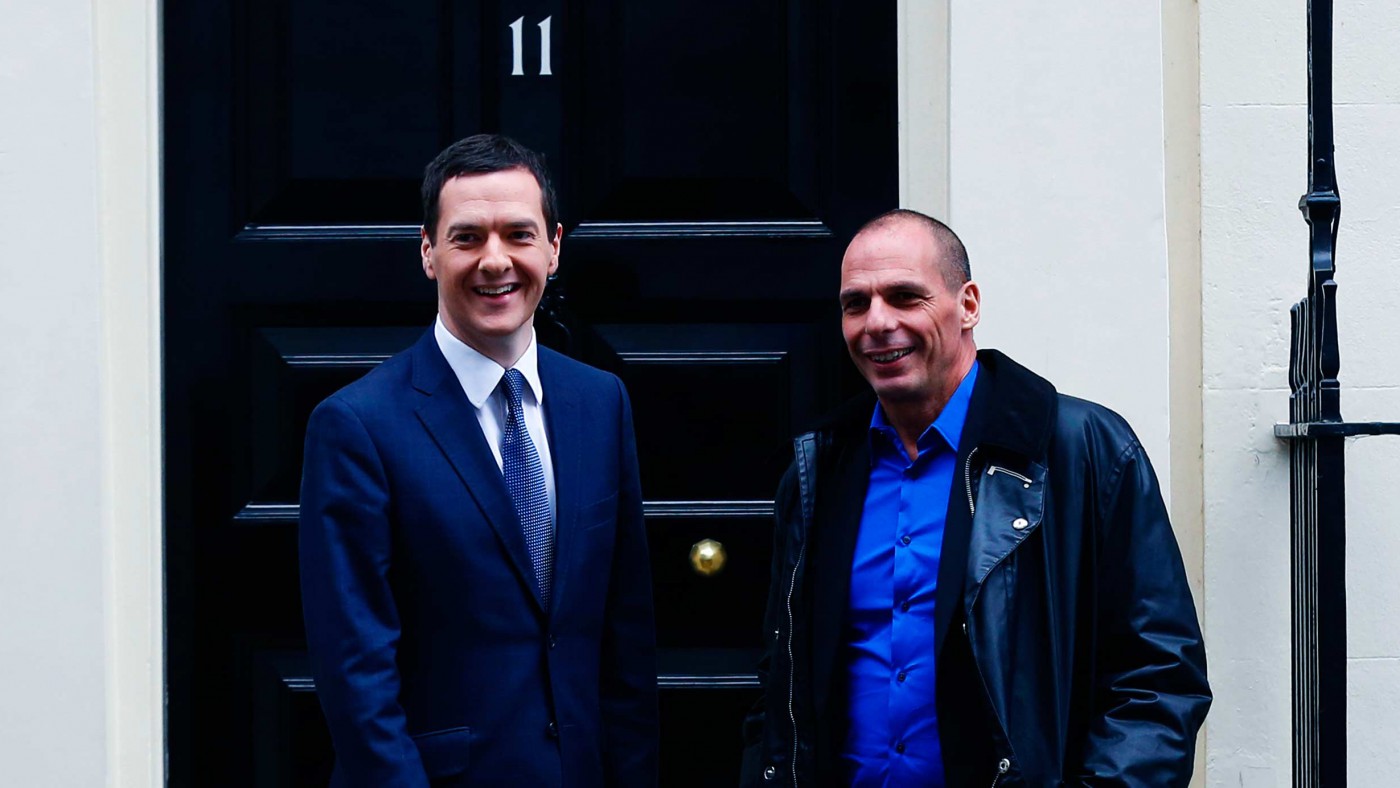In recent days the new Greek government’s finance minister has been touring European capitals in a leather jacket, bright blue open-necked shirt and tight trousers. Assorted fellow finance ministers and conventionally dressed members of the Euro elite have been pictured standing alongside him looking awkward.
On one level, the relaxed demeanour of the Marxist Yanis Varoufakis is refreshing. Not for him the stuffiness of standard summit etiquette and diplomatic finesse. With a smile on his face, he is determined to stick it to “the man” and the markets, which attracts whoops of support from supporters on the far left across Europe. Let us put to one side the awkward reality that he proposes sticking it to the man and the markets by trying to, er, borrow more from the markets or at least asking the markets to forget what Greece has already borrowed.
But the antics of Varoufakis are no joke. He is finance minister of a country on the edge, that could leave the Eurozone within weeks causing chaos.
As Matthew Parris put it in the Times the other day, it looks as though all hell is about to break loose:
“The moment I heard Yanis Varoufakis on the radio, I thought ‘this is trouble’. Far too direct, too clear-thinking, too intellectual for politics, the new Greek finance minister sounded alarmingly interested in ideas and made the mistake of actually engaging with the questions.”
Now, the Greek government finds itself running out of time. It wants a deal, but even if Germany and the ECB can be persuaded to compromise on the debt, they will demand assurances that the new government has a serious plan to reform Greece and grow the economy. Of course, the new government of Greece has no such plan. It was elected promising to defy the markets, increase spending and entitlements and reduce the influence of the private sector. Its only plan is for the state to borrow and spend more money.
In the Wall Street Journal today, Simon Nixon has brilliantly dissected the Greek government’s student politics approach to economics.
“What should now be dawning on Greece’s new leadership on their whistle-stop tour of European capitals is that they will almost certainly have to ask the eurozone for a further extension of the country’s current bailout agreement, which is due to expire on Feb. 28, despite promising voters that they would end the bailout.
The reality is that the market won’t fund Greece without international protection, making it impossible for Athens to roll over its debts. The ECB has also been insistent on some form of umbrella being in place as a condition of its continuing to accept Greek junk-rated assets as collateral for its liquidity operations, vital to the operation of the Greek banking system. It was Mr. Tsipras’s stated refusal to ask for an extension of the current program that led the ECB Wednesday to withdraw Greek access to its funding facilities, to shield eurozone taxpayers from exposure to the costs of a Greek banking collapse.
Without an extension, Greece risks a further loss of market confidence, leading to capital flight and bank runs.”
You can read Simon Nixon’s full piece here.
But what happens if the Greek government does eventually cave in? Political fallout and further unrest would surely follow. After all, Alexis Tsipras was elected to end austerity, scrap the bailout on its current terms and “stick it to the man”.
What happens if voters think they have been sold out or, more likely, Tsipras blames German cruelty for there being no deal and then whips up a storm?


